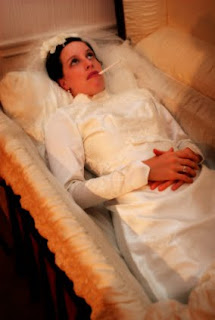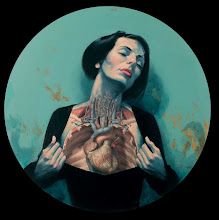
When I was young only old people died; babies and children didn’t die. At least that’s what I believed. Parakeets died, and sometimes our beloved pets died. That was really hard. The death of people seemed so surreal, maybe because of the way we depersonalized it, but when my dog died, it was the most real thing that had ever happened to me.
The day Lady was run over was the first day I really understood the finality of death and the depths sadness could reach. I was maybe 9 years old at the time. Prior to getting Lady, our miniature beagle, all we were allowed were goldfish, mice, rats, and an occasional bird, usually a finch or canary. They were okay, but you couldn’t snuggle up to them like you could a dog. Dogs listen, dogs care, dogs love you. They’re also really cute, particularly when you love them. And dogs are always happy to see you. I never could tell if my fish was happy to see me, its beady black eyes had the same steeled-glass stare 24/7. Plus, fish don’t have eyelids, which means they can’t wink at you, or even blink at you. Come to think of it, mice and rats don’t have eyelids either. Birds have eyelids, don’t they?
I remember the day Perry died. Perry was the parakeet of my best friend, Midge. His cage was in the laundry room, and we had to pass by him every time we went outside to play or swim in the pool. He was green and ordinary, and if memory serves me correctly, he could talk. Not much, but a little. One day we found Perry-the-Parakeet dead at the bottom of his cage. Right around that time, both of us had decided to become Episcopalians. Midge led the way and I followed right behind. St. Alban’s, in West LA, was where we were initiated into the mysteries of Christendom. We loved everything about it. It had just the right amount of ritual, incense, pomp and circumstance without going overboard. We needed God right about then for who knows what might have become of us without divine intervention. We had taken grand delight in hiding in the room beneath the stairs whereupon we would undress our Ken and Barbie dolls and make them do forbidden things, things our parents would have cringed at, not to speak of the church. Being Episcopalian was not only handy, but timely. We were well equipped to do just about anything priests could do because now, we had the instruction book. The Book of Common Prayer is essentially a compendium of cliff notes for priests and priestly wannabes. It’s also for people who just want to follow along. There are varying prayers and orders of worship for all the kinds of stuff that comes up in life, funerals among them. Who better than the two of us to perform a proper ceremony for Perry? We had plenty of practice on other dead things, animals we never knew for they lived in the wild. Everyone got a proper burial if we had anything to say about it.
We prepared a coffin out of a shoebox, shrouded the lifeless little bird in silk, and laid him gently within the confines of his permanent new home. We had dug a shallow grave at the end of a garden path, had a short meeting about the ceremony and what would need to be involved. Prayers were selected and personal words of remembrance were scratched out on paper. We gathered a few friends, for a processional of two was hardly worth having. The funeral march began. It was beautiful, personal, proper, and lovely. Perry was laid in the ground, flowers atop his grave. Should we all go out like Perry.
I never saw Lady’s body after her mortal meeting with the car. What happened to it? Was it in the trunk of my father’s car? Had he dug a shallow grave by the side of the road and buried her alone, without me there? Did he drive her to the vet and leave her there? I will never know. What I do know is that after the tragic news was delivered, we were told that we’d be going out for hamburgers, as if that would make everything okay again. Though still a child, I was consumed with grief. Face flushed, lungs raw from wailing, youthful cheeks temporarily scarred from dragging my fingernails down my face in angst. I bore the visible signs of grief like a stigmata from God almighty.
What has happened to us? Why do we turn away from the continuum of life by seeing death as abhorrent? How much courage does it take to reclaim our rightful place at the side of those we love, even after they have left their earthly vessels? Why have we given dominion over the body and souls of those we hold dear to perfect strangers? Why do we sterilize death as if death itself were a plague we hope will not infect us? It is time to reclaim what has always been ours. We, as people from the beginning of time, have cared for our dead. We have bathed, clothed, perfumed, and anointed them. We carry, in our DNA, the wisdom to deliver our dead right to the doorstep of the beyond. We do so as an honor and a sacred charge. When the lineage of spirit is broken, we all suffer the pain of disconnection to one another and to life itself. Death does not become us.
 When you are young, the winds of Fate can carry you to places you would never dream of traveling. The young have an innocence, a joie de vie, that often has been put to rest in later years. Undaunted, the young step bravely into the Unknown.
When you are young, the winds of Fate can carry you to places you would never dream of traveling. The young have an innocence, a joie de vie, that often has been put to rest in later years. Undaunted, the young step bravely into the Unknown.















